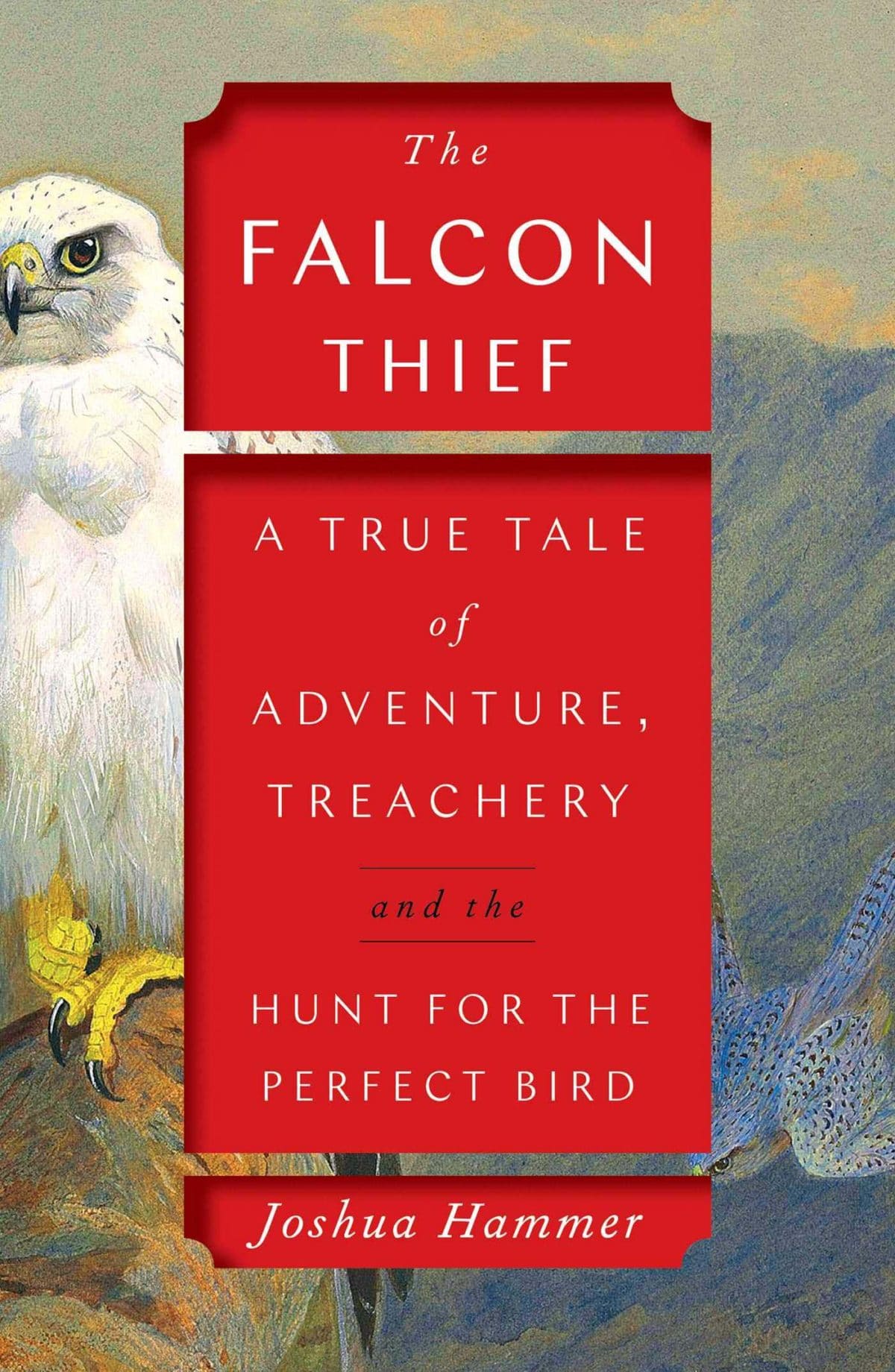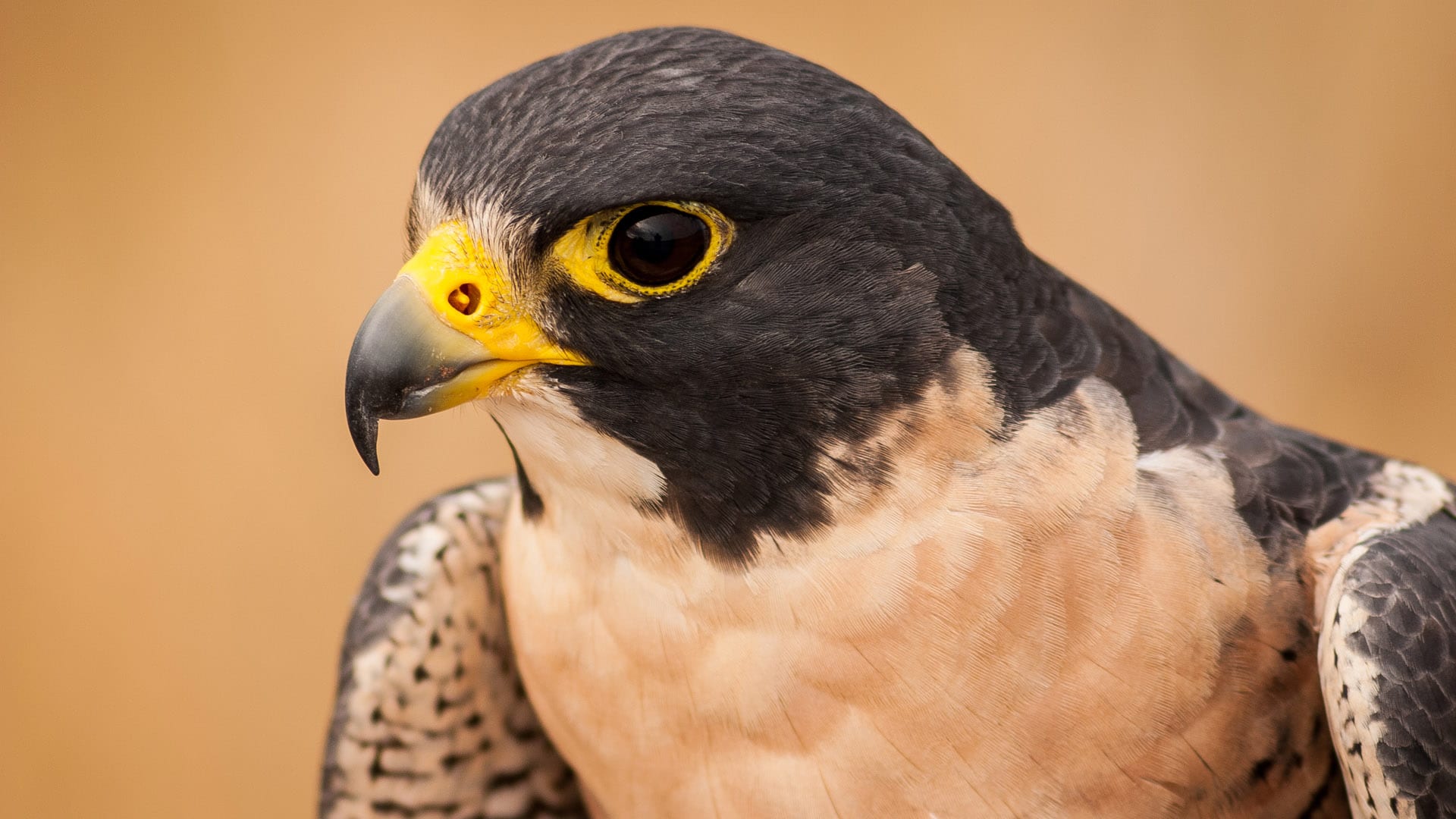A lucrative international black market exists for nearly every plant and animal imaginable. Donkeys are stolen and slaughtered in Africa for the gelatin found in their hides, which is sought after in China. Otters are captured in Indonesia and Thailand and trafficked to Japan to supply the latest pet craze. Succulent plants are stolen from protected areas in South Africa, the American West, and Peru to be smuggled to collectors around the world. Even insects are the occasional victims of massive heists.

BOOK REVIEW — “The Falcon Thief: A True Tale of Adventure, Treachery, and the Hunt for the Perfect Bird,” by Joshua Hammer (Simon & Schuster, 336 pages).
In 2017, author and journalist Joshua Hammer happened across a newspaper story describing yet another facet of the global illegal wildlife trade: egg poaching. The story Hammer read was about Jeffrey Lendrum, a serial nest raider who had been convicted of stealing raptor eggs in multiple locations around the world. The article struck Hammer as too odd to overlook. As he later wrote, “The notion that there was a lucrative black market for wild birds’ eggs seemed faintly ridiculous to me, like some wacky quest out of Dr. Seuss’s ‘Scrambled Eggs Super!’”
Hammer decided to do a little digging. As he pulled at the story’s threads, he discovered that endangered bird egg smuggling is far from a farce for the traffickers and buyers involved — and for the wildlife investigators trying to stop them. Live eggs of certain species can sell for $100,000 dollars each on the black market, and their trade has imperiled some raptors with extinction. Hammer’s curiosity about the inner workings of this murky world led him down an exhaustive, two-plus-year investigation that culminated in his new book, “The Falcon Thief.” By exploring the outlandish story of “the Pablo Escobar of eggs,” as media outlets dubbed Lendrum, Hammer also shines a light on the larger landscape of bird traffickers and collectors.
Lendrum is far from the world’s first nest robber. The practice, called oology, dates back to the Victorian era. While a few of those original oologists were bona fide scientists, most were wealthy British egg collectors driven by “a passion for beauty and a lust for curiosities,” as Hammer quotes of one Victorian observer. By 1922, however, the Royal Society for Protection of Birds had turned on the practice, calling it a “distinct menace” to birds, and in 1954, the U.K.’s Protection of Birds Act made egg collecting illegal. A criminal underworld of egg collectors persists, however. In 1999, for example, authorities arrested a British man who had more than 4,000 eggs hidden in his house.
What motivates such collectors is “the $64,000 question,” according to Andy McWilliam, a wildlife investigator who specializes in bird crime, and who serves as a key source in Hammer’s book. Some collectors seem to relish the physical challenges of egg collecting — rappelling down a cliff face or braving towering trees — while others, McWilliam tells Hammer, thrive on the cat-and-mouse game of outwitting authorities. Still others, he believes, are more like people with alcohol or drug addiction — hooked on eggs.
Personal obsession aside, some egg thieves are simply driven by the exorbitant sums of money that certain collectors, especially those in the Middle East, are willing to pay. Rather than blowing out the eggs’ contents and keeping only the shells, these collectors mostly seek still living eggs to be sold to wealthy falconers.
Falconry has been practiced in the Middle East for more than 2,500 years, where it was originally developed as means of survival. Bedouins depended on trained falcons to help them acquire extra protein through hunts. Falconry has since evolved into a hobby of the wealthy and a sport of the high-class. In 2002, the son of Dubai’s billionaire ruler, looking to expand the tradition, introduced falcon racing to the Arab world, creating a multimillion-dollar global industry. While most falcons used today are legal, captive-bred birds, Hammer reports that certain Middle Eastern collectors will pay up to $400,000 for an illegally captured wild falcon, perceived by some as being superior to its presumably docile relatives born in captivity.
Lendrum’s motivations for getting involved in raptor poaching probably fell somewhere in between obsession and greed. As a child in Rhodesia (now Zimbabwe), he became a “prolific nest raider,” Hammer writes, sometimes competing with a boyhood friend to see who could steal the most eggs. In 1973, when Lendrum was just 11, his father brought him to a meeting of the Rhodesian Ornithological Society. The two became active, beloved members, participating in a citizen science project monitoring African black eagles in Matobo National Park, and later assuming responsibility for monitoring African hawk eagles as well.
A few years after the father-son duo joined the society, however, strange things began to happen. Nests belonging to rare, protected species that formerly had eggs in them began turning up empty. All evidence pointed to the Lendrums. In 1983, authorities raided their home and discovered a collection of over 1,000 eggs, many of which belonged to protected species. The two were convicted and, as part of their punishment, barred from entering any of Zimbabwe’s national parks.
Lendrum did not learn his lesson. By 1999, Paul Mullin, Lendrum’s former best friend and business partner, told Hammer that Lendrum was robbing nests in Southern Africa and selling the eggs to local collectors. Lendrum told Mullin he had plans to expand his clientele to include wealthy collectors in the Middle East. Later that year he made good on that plan, according to Mullin, by smuggling three baby lanner falcons from Zimbabwe to the U.K. and then on to Dubai.
In 2001, Lendrum and Mullin headed to subarctic Canada where, posing as National Geographic photographers, they poached 27 endangered white gyrfalcon eggs, said to be worth up to $100,000 each. After making it back to the U.K., Lendrum flew on to the Middle East where he delivered the live eggs to his undisclosed wealthy sponsor and declared the trip “a total success,” Mullin told Hammer.
But Lendrum’s luck took a turn the following year. In 2002, Canadian authorities, tipped off by a savvy pilot, caught Lendrum and Mullin in the act. They were fined and barred from ever coming back to Canada. Yet the scare did not have a lasting impact. In 2010, Lendrum was detained by British authorities after an astute janitor noticed strange activity in the Emirates Lounge at Britain’s Birmingham International Airport, where Lendrum was scheduled to catch a flight to Dubai. When the police ordered Lendrum to undress down to his underwear, they found 14 sock-wrapped eggs secured to his abdomen with tape and plastic ties. Lendrum claimed they were duck eggs, but McWilliam, who had been called to the scene to help, identified them as protected peregrine falcon eggs poached from Wales. Lendrum was sentenced to 2.5 years in jail (later reduced to 18 months).
Like someone with a true addiction, after his release, Lendrum quickly found his way back to egg poaching. In 2015, he was arrested at an airport in Brazil with four pallid falcon eggs that he had poached in Patagonia. Rather than face justice, he fled the country while out on bail. In 2018, he was again arrested at London’s Heathrow airport on his way to Dubai with 17 eggs from various endangered African raptors strapped to his body in a customized belt. Lendrum was sentenced to 37 months in prison, a term he is still serving today.
Hammer’s account is both riveting and eye-opening: It is rare to get such an intimate look into the life of a major international poacher. What Hammer does not shed much light on, however, are the buyers on the receiving end of Lendrum’s shenanigans. Lendrum himself has remained steadfastly tight-lipped about his wealthy clients, and McWilliam, who says he has gathered intelligence about bird trafficking to Dubai, Qatar and Saudi Arabia, refuses to name names because of the ongoing nature of the investigation.
What is almost certain, though, is that the rich and powerful collectors who ultimately underwrite much of the world’s raptor poaching will not be punished — and that new Lendrums will emerge as a result. Indeed, McWilliam and his colleagues have already informed the Arab authorities of the intelligence they have gathered, but the Arabs seem uninterested. As McWilliam told Hammer, “It’s out of our control.”











